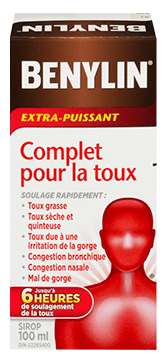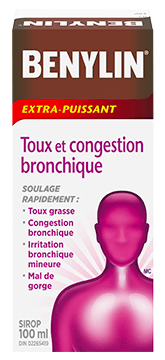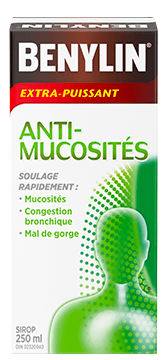How to fight a persistent cough
Written in collaboration with Benylin
The common cold and the flu are respiratory infections with very similar symptoms. They are both conditions are caused by viruses; however they differ in their intensity. Oftentimes, people confuse these two illnesses.
The common cold is less intense, lasting around seven days and causing a runny nose, sore throat and cough. The flu is more severe, often lasting over two weeks and causing fever, aches, fatigue and coughing.
Whether you are suffering from a cold or flu, a persistent cough is one of the symptoms likely to interfere with your daily routine. That's why it's important to identify the type of cough you have so that you can find relief.
Types of coughs
Keep in mind that a cough is your body's natural response to a foreign substance obstructing your throat or respiratory tract. It's not a disease in itself but a symptom. When a cold or flu is over, the coughing typically ends. However, it can continue long after the active infection has disappeared.
Dry cough
A dry cough is a persistent, nagging cough caused by minor throat irritation, resulting in dryness in your throat. A dry cough is often the result of a viral illness, such as the common cold, but can be caused by various factors if it lingers.
Buy Benylin Dry cough Buy Benylin Dry cough Night
Coughing when you have a cold
The common cold sometimes comes with a bad cough, which is difficult to control, and nasal congestion. As mentioned above, coughing helps clear mucus from the throat and airways. That's why you shouldn't try to stop coughing. Your best course of action is to alleviate the symptom.
Bronchitis cough
A bronchitis cough is more like a continuous wet cough. This condition is caused by inflammation of the lungs and airways due to the common cold. Mucus is produced in the lungs, triggering the cough. After a few days, bronchial coughing can lead to chest pain and a sore throat due to the irritation it causes.
Buy Benylin cough & chest congestion
A cough with (mucus) phlegm
Bronchial coughs can be accompanied by excessive mucus. They can become quite a nuisance in everyday life.
When you're ill, it's essential to take certain precautions to avoid contaminating others, such as coughing into your elbow, washing your hands regularly, and limiting contact with more vulnerable people. Wearing a mask may also be considered.
A humidifier, hot soup and cough syrup will help you get through your cold and flu symptoms!
Don't hesitate to consult a healthcare professional for more information on how to fight coughs.





